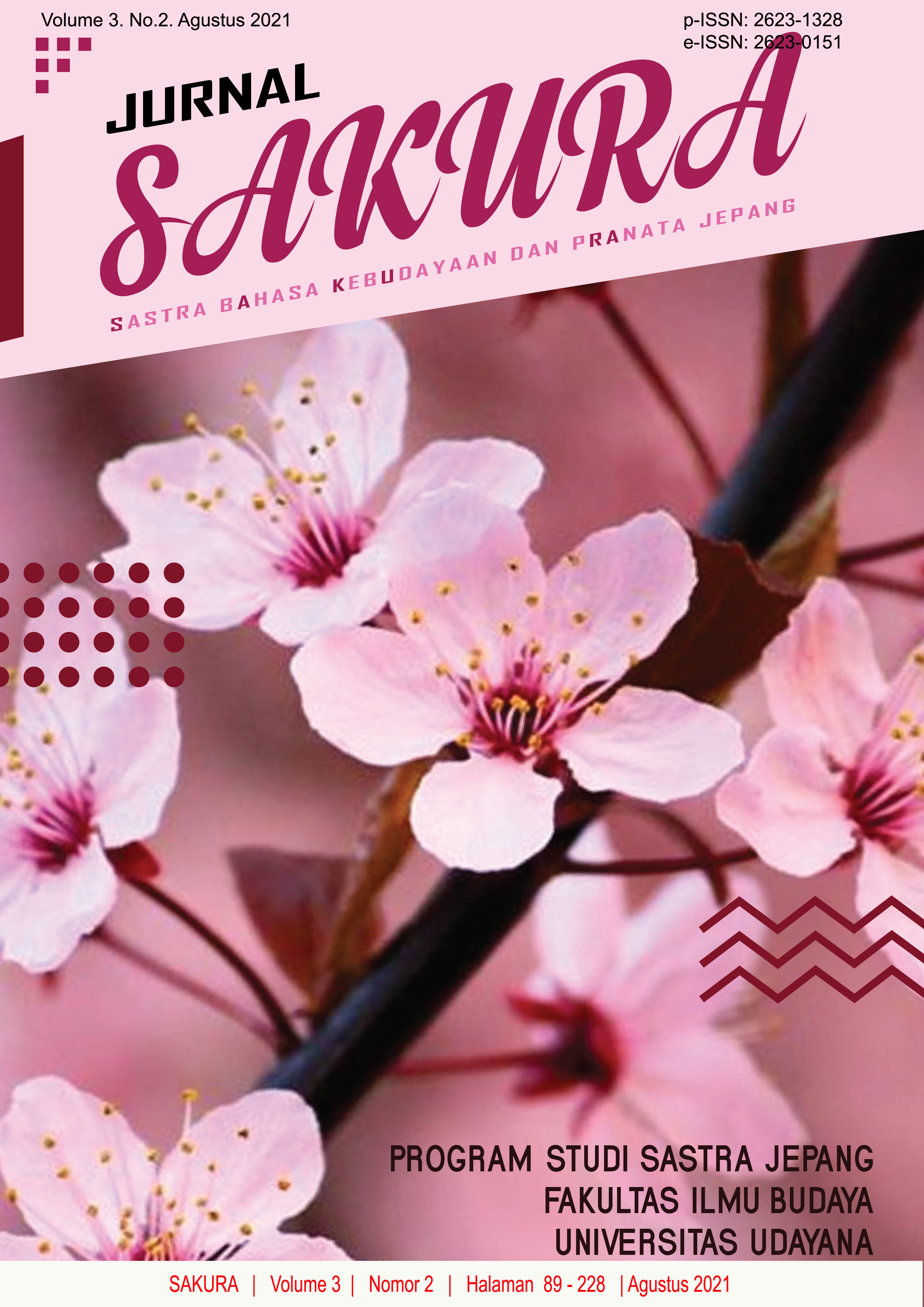Kepribadian Dan Ikigai Tokoh Utama Pelaku Pembunuhan Dalam Film Kokuhaku
Abstract
This study aims to examine the relation between the character's personality and the Japanese motivational concept of ikigai on the murderers of the Kokuhaku’s movie, Yuko Moriguchi, Shuya Watanabe, and Naoki Shimomura. The method used in this study is a qualitative descriptive method with a literary psychology approach. The data analysis technique used is the listening technique followed by the note-taking technique. The personality theory used is Carl G. Jung's theory of personality typology, and the concept of ikigai in this study uses the concept by Akihiro Hasegawa. The results of this study indicate that Yuko Moriguchi has an extroverted-thinking personality and her ikigai is her daughter, then Shuya Watanabe has an introverted-thinking personality with gaining recognition as his ikigai, and Naoki Shimomura has an introverted-thinking personality and his ikigai is gaining recognition. The conclusion that can be drawn from this research is that a person's personality and ikigai influence each other, especially in their behavior.
Downloads
References
Kono, Shintaro dan Walker, Gordnon. (2020). “Theorizing The Interpersonal Aspect of Ikigai (‘Life Worth Living’) Among Japanese University Students: A Mixed-methods Approach”. International Journal of Wellbeing, 10(2), hlm. 19
Kristanto, JB. (2004). Nonton Film Nonton Indonesia. Jakarta: Penerbit Buku Kompas.
Miles, B. Mathew dan Michael Huberman. (1992). Analisis Data Kualitatif Buku Sumber Tentang Metode-metode Baru. Jakarta: UIP.
Mitsuhashi, Yukari. (2018). Ikigai: Giving Every Day Meaning And Joy. London: Kyle Books.
Musman, Asti.(2020). The Power of Ikigai. Yogyakarta: Anak Hebat Indonesia.
Naisaban, Ladislaus. (2003). Psikologi Jung: Tipe Kepribadian Manusia dan Rahasia Sukses dalam Hidup (Tipe Kebijaksanaan Jung). Jakarta: PT. Grasindo.
Rivai, Veithzal. (2016). Manajemen Sumber Daya Manusia Untuk Perusahaan. Jakarta: PT. Raja Grafindo Persada.
Sobur, Alex. (2003). Psikologi Umum. Bandung: Pustaka Setia.













